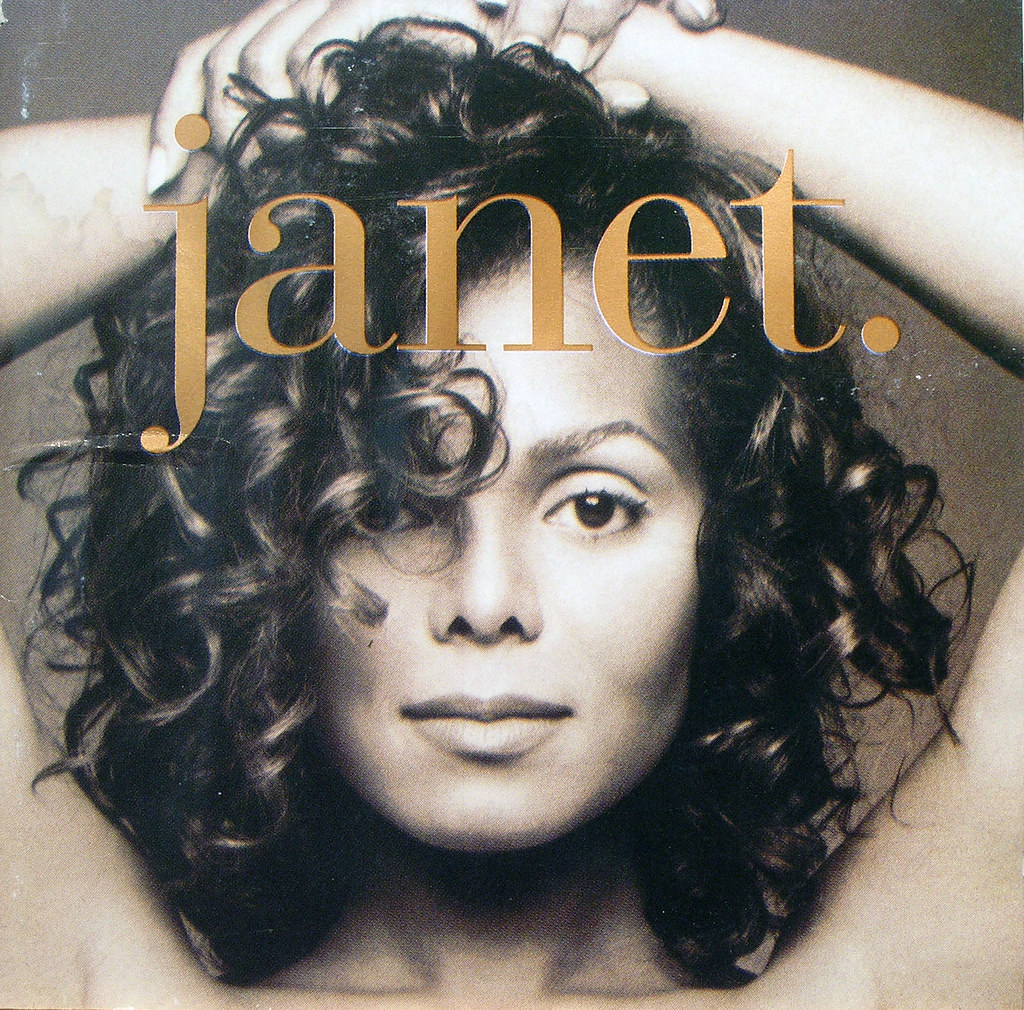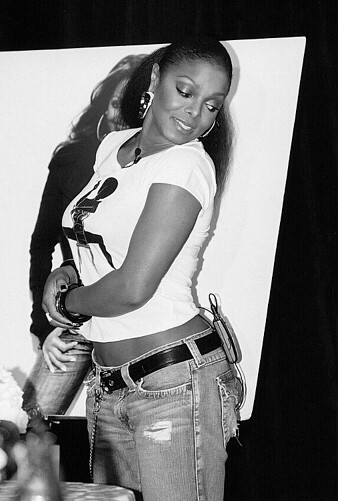
The annals of music history are rife with tales of triumph and tribulation, but few narratives underscore the stark realities of power dynamics and gender inequality quite as sharply as that of Janet Jackson. For decades, Jackson captivated the world, evolving from a child star into a global icon whose artistry consistently pushed boundaries, tackled social issues, and redefined pop music. Her journey was one of relentless innovation, self-determination, and groundbreaking success, culminating in a period where she stood unequivocally at the zenith of her career, often surpassing even her legendary brother Michael in influence and financial standing.
Yet, for all her monumental achievements and her undeniable impact on culture, Janet Jackson found her illustrious career abruptly derailed by a singular, unplanned moment during the Super Bowl XXXVIII halftime show. This incident, often referred to as a “wardrobe malfunction,” created a firestorm that would disproportionately impact her, casting a long shadow over her future endeavors while her male counterpart, Justin Timberlake, emerged largely unscathed, continuing his ascent to pop superstardom. This article delves into the foundational years and the spectacular rise of Janet Jackson, meticulously chronicling her path to becoming a formidable force in entertainment, setting the crucial context for the unjust aftermath that followed.
We embark on a comprehensive journey through the early chapters of Jackson’s career, exploring the pivotal moments, artistic shifts, and personal battles that forged her into the unstoppable icon she became. By understanding the sheer magnitude of her contributions and the profound cultural significance she held prior to the 2004 incident, we can truly grasp the depth of the price she was made to pay, and the enduring questions it raises about fairness, accountability, and the capricious nature of public perception in the entertainment industry.

1. **From Child Star to “Control”: Establishing an Independent Identity**Janet Damita Jo Jackson entered the world on May 16, 1966, the youngest of ten children in the renowned Jackson family, a working-class African-American family from Gary, Indiana. While her brothers gained fame as the Jackson 5, Janet initially harbored ambitions far removed from the stage, dreaming of becoming a horse racing jockey or an entertainment lawyer. Despite these early aspirations, her family’s trajectory meant a career in entertainment was almost preordained, a path she began to seriously consider after recording herself in the studio.
Her earliest forays into the limelight were in television, where she quickly demonstrated a natural talent for acting. At age seven, she performed with the Jackson 5 in Las Vegas, and by 1976, she was acting in *The Jacksons* variety show. She secured a starring role as Penny Gordon Woods in the sitcom *Good Times* in 1977, followed by appearances in *A New Kind of Family* and a recurring role as Charlene Duprey in *Diff’rent Strokes*. She also took on the role of Cleo Hewitt during the fourth season of *Fame*, though she expressed indifference towards the series, partly due to the emotional stress of her secret marriage to R&B singer James DeBarge.
At the tender age of fifteen, her father and manager, Joseph Jackson, arranged a contract for her with A&M Records. Her debut album, *Janet Jackson*, was released in 1982, followed by *Dream Street* two years later. Both albums leaned heavily into bubblegum pop, achieving modest chart success but receiving little promotion. These early efforts, while foundational, largely positioned her within the shadow of her famous siblings and under the strict management of her father, a dynamic she would soon decisively challenge.
The turning point came after her second album, when Jackson made the pivotal decision to terminate business affairs with her family. Reflecting on this monumental step, she commented, “I just wanted to get out of the house, get out from under my father, which was one of the most difficult things that I had to do.” This declaration of independence set the stage for her transformative collaboration with producers Jimmy Jam and Terry Lewis, a partnership that would redefine her sound and image, aiming for crossover pop appeal while solidifying her urban market presence.
Within a mere six weeks, Jackson and the duo crafted her third studio album, *Control*, released in February 1986. The album was an immediate sensation, rocketing to No. 1 on the Billboard 200 and achieving fivefold Platinum certification by the RIAA, selling over ten million copies worldwide. Critics hailed it as “remarkably nervy and mature” for a teenage act and “an alternative to the sentimental balladry” prevalent on radio. *Control* spawned five top five singles, including “What Have You Done for Me Lately” and “Nasty,” with “When I Think of You” becoming her first Hot 100 number one hit. The album, profoundly influenced by an incident of ual harassment, served as a powerful declaration of self-defense and empowerment, firmly establishing Jackson “as an artist in her own right,” free from the “shadow Jackson child” narrative.
Read more about: Claudia Cardinale, Italian Film Star Who Embodied an Era, Dead at 87: A Comprehensive Look at Her Iconic Career
2. **Rhythm Nation 1814: A Socially Conscious Pop Phenomenon**Following the groundbreaking success of *Control*, Janet Jackson sought to expand her artistic vision beyond personal empowerment. Despite her record label’s desire for a direct sequel, Jackson chose a more ambitious path, infusing her fourth album, *Rhythm Nation 1814*, with a compelling socially conscious theme alongside diverse musical styles. Released in September 1989, the album tackled universal concerns such as injustice, illiteracy, crime, and drugs, reflecting Jackson’s belief that while an album might not change the world, her music could capture attention long enough for listeners to absorb its important lyrical messages.
*Rhythm Nation 1814* proved to be another monumental success, peaking at No. 1 on the Billboard 200, achieving sixfold Platinum status from the RIAA, and selling over 12 million copies worldwide. Rolling Stone lauded Jackson’s artistic growth, noting her shift “from personal freedom to more universal concerns… without missing a beat.” The album was recognized as “the exclamation point on her career,” showcasing her natural talent and expanding her range in every conceivable direction, embodying a multifaceted strength that was both feminine and masculine, adult and childlike.
The album’s impact on the charts was unprecedented, yielding a remarkable seven top five singles on the Hot 100, including “Miss You Much,” “Rhythm Nation,” and “Love Will Never Do (Without You).” This achievement made it the first album in history to produce number one hits in three separate calendar years and the only album to garner seven top five singles on the Hot 100. The iconic “Rhythm Nation” music video, celebrated for its choreography and warehouse setting, solidified Jackson’s status as a fashion icon, with her military ensemble becoming instantly recognizable. The video for “Love Will Never Do (Without You)” also marked a significant visual transition, showcasing her embrace of ual imagery and her now-trademark midriff-baring style.
The Rhythm Nation World Tour 1990 further cemented her global influence, setting records as the most successful debut tour in history and achieving the fastest sell-out of Japan’s Tokyo Dome. Beyond the commercial success, Jackson demonstrated her commitment to social good by establishing the “Rhythm Nation Scholarship,” donating tour funds to various educational programs. Her cultural impact was widely acknowledged during this period; Joel Selvin of the San Francisco Chronicle described her as a “major role model to teenage girls across the country,” and William Allen of the United Negro College Fund praised her as a role model for all young people, highlighting the positive effects of *Rhythm Nation 1814*’s lyrics.
In recognition of her extraordinary impact on the recording industry and her philanthropic endeavors, Jackson received a star on the Hollywood Walk of Fame. Her massive success placed her squarely in league with her brother Michael, Madonna, and Tina Turner. Ebony magazine famously remarked that “No individual or group has impacted the world of entertainment as have Michael and Janet Jackson,” asserting that few could surpass Janet’s “stunning style and dexterity.” By the fulfillment of her A&M Records contract in 1991, she signed a groundbreaking multimillion-dollar deal with Virgin Records, estimated between thirty-two and fifty million dollars, establishing her as the highest-paid recording artist at the time and earning her the unofficial title of the “Queen of Pop.”

3. **The *Janet.* Era: Embracing Sexuality and Shattering Records**Having established herself as both a pop powerhouse and a socially conscious artist, Janet Jackson embarked on her next creative chapter with the release of her fifth studio album, *Janet.*, in May 1993. This album marked a bold new direction, opening at number one on the Billboard 200 and making Jackson the first female artist in the Nielsen SoundScan era to achieve such a debut. *Janet.* was a commercial juggernaut, certified sixfold Platinum by the RIAA and selling over 14 million copies worldwide, showcasing her continued dominance in the music industry.
The album’s singles enjoyed widespread success, further solidifying her chart presence. The lead single, “That’s the Way Love Goes,” won the Grammy Award for Best R&B Song and commanded the top spot on the Billboard Hot 100 for an impressive eight consecutive weeks. “Again,” a poignant ballad, also reached number one for two weeks, while “If” and “Any Time, Any Place” both peaked within the top four. The diverse range and consistent chart performance of these tracks demonstrated Jackson’s ability to craft hits across different moods and styles.
Artistically, *Janet.* was a testament to her expanding creative control and willingness to experiment. The album explored a rich tapestry of genres, including contemporary R&B, deep house, swing jazz, hip-hop, rock, and pop, each “delivered with consummate skill and passion,” as described by Billboard. Crucially, Jackson took a more significant role in songwriting and production than on her previous albums, emphasizing her necessity “to write all the lyrics and half of the melodies.” This era also saw her speaking candidly about incorporating her uality into the album’s content, a move that Rolling Stone recognized as a significant “cultural moment.” As the “princess of America’s black royal family,” her announcement of sexual maturity held immense symbolic weight.
In July 1993, Jackson ventured into film with her debut in *Poetic Justice*, where she starred opposite Tupac Shakur. Although the film received mixed reviews, her performance was singled out for praise, described as “beguiling” and “believably eccentric.” The ballad “Again,” which Jackson wrote for the film, garnered Golden Globe and Academy Award nominations for “Best Original Song,” further highlighting her versatile talents and widespread appeal across different entertainment mediums.
Perhaps one of the most visually arresting and talked-about moments of this era was Jackson’s September 1993 appearance on the cover of Rolling Stone. The photograph depicted her topless, with her breasts anonymously covered by her then-husband, René Elizondo Jr. This iconic image, an original version of the cropped photo used for the *Janet.* album cover, became one of the “most recognizable, and most lampooned, magazine covers” according to The Vancouver Sun. It powerfully underscored her dual status as both a respected role model and an unapologetic symbol, challenging perceptions and solidifying her mature artistic identity.

4. **Collaborations and Cultural Clout: Navigating Family Scandals**As the *Janet.* era flourished, Janet Jackson embarked on the Janet World Tour, a spectacle that, despite some criticism regarding her vocal proficiency and spontaneity, garnered immense critical acclaim for its unparalleled showmanship. The tour was lauded for blurring the lines between “stadium-size pop music concerts and full-scale theatrical extravaganzas,” with the concert program rightfully crediting her as the show’s “creator and director.” This period solidified her reputation not just as a performer, but as a visionary artist with a singular command of her stage presence and creative direction.
Amidst this career high, Jackson faced significant personal challenges. She was on the verge of signing a lucrative multimillion-dollar deal with Coca-Cola when her brother Michael became embroiled in a highly publicized child abuse scandal. Demonstrating unwavering familial loyalty, Janet provided steadfast moral support, publicly defending her brother and refuting abuse allegations made by her sister La Toya against their parents. This trying period underscored her resilience and commitment to family, even as it placed her under intense public scrutiny.
In a powerful artistic response to the media frenzy, Janet collaborated with Michael on “Scream,” the lead single from his 1995 album, *HIStory*. Co-written by the siblings, the song served as a direct commentary on the relentless media scrutiny they faced. “Scream” made history by debuting at number five on the Hot 100 singles chart, becoming the first song ever to debut within the top five. Its accompanying music video, directed by Mark Romanek, set a new benchmark for extravagance, listed in Guinness World Records as the “Most Expensive Music Video Ever Made” at a staggering cost of $7 million, and later earned a Grammy Award for Best Short Form Music Video.
This era also saw the release of Jackson’s first compilation album, *Design of a Decade: 1986–1996*, in 1995. The album reached number three on the Billboard 200, further cementing her enduring popularity. Its lead single, “Runaway,” achieved another milestone, becoming the first song by a female artist to debut within the top ten of the Hot 100, ultimately reaching number three. *Design of a Decade* was certified double Platinum by the RIAA, a testament to her consistent appeal and the lasting power of her hit songs.
Janet Jackson’s influence in pop music continued to garner widespread acclaim, with The Boston Globe remarking on her elevated status: “If you’re talking about the female power elite in pop, you can’t get much higher than Janet Jackson, Bonnie Raitt, Madonna and Yoko Ono. Their collective influence … is beyond measure. And who could dispute that Janet Jackson now has more credibility than brother Michael?” This period culminated in her renewing her contract with Virgin Records for an unprecedented $80 million the following year, establishing her as the then highest-paid recording artist in history, surpassing the previously unparalleled $60 million contracts held by both Michael Jackson and Madonna. This contract underscored her formidable power, commercial appeal, and undeniable status as a global music icon.

5. **The Velvet Rope: Daring Artistry and Personal Vulnerability**Despite her monumental successes, the mid-to-late 1990s brought profound personal struggles for Janet Jackson, as she began to suffer from severe depression and anxiety. This challenging period became the raw, emotional core of her sixth album, *The Velvet Rope*, released in October 1997. The album marked a dramatic transformation in image, with Jackson sporting vibrant red hair, nasal piercings, and tattoos, signaling a new era of artistic and personal exploration that resonated deeply with her audience.
*The Velvet Rope* centered on the universal human need to belong, delving into themes of self-discovery, vulnerability, and complex social issues. Far more ually explicit than her previous release, *Janet.*, the album courageously explored topics such as same-sex relationships, homophobia, domestic violence, and even sadomasochism. This daring thematic content, coupled with her raw honesty, garnered widespread critical acclaim, with The New York Times hailing it as “her most daring, elaborate and accomplished album,” and Billboard declaring it “the best American album of the year and the most empowering of her last five.” The album debuted at number one on the Billboard 200, was certified triple Platinum by the RIAA, and sold over eight million copies worldwide.
The album produced several significant singles, further showcasing Jackson’s artistic range and commercial appeal. The lead single, “Got ’til It’s Gone,” featuring guest vocals from folk legend Joni Mitchell and rapper Q-Tip, earned a Grammy Award for Best Short Form Music Video, with its visuals depicting a pre-Apartheid celebration. “Together Again” became Jackson’s eighth number-one hit on the Billboard Hot 100, placing her in an elite league with artists like Elton John and Diana Ross. It spent a remarkable forty-six weeks on the Hot 100 and nineteen weeks on the UK singles chart, selling six million copies worldwide and becoming one of the best-selling singles of all time. “I Get Lonely” peaked at number three on the Hot 100 and received a Grammy nomination, making it her eighteenth consecutive top ten hit—an achievement surpassed only by Elvis Presley and The Beatles among all artists.
*The Velvet Rope* firmly established Jackson as a significant gay icon, largely due to its explicit themes regarding homouality and its strong stance against homophobia. Tracks like “Together Again,” a “post-Aids pop song,” and “Free Xone,” described as a “paean to homosexuality” and an “anti-homophobia track,” were particularly praised for their lyrical context. Her lesbian reinterpretation of Rod Stewart’s “Tonight’s the Night” further underscored her commitment to inclusivity and representation. The album’s profound impact on the LGBTQ+ community was recognized with an “Outstanding Music Album” award at the 9th Annual GLAAD Media Awards, and she was honored by the National Black Lesbian and Gay Leadership Forum, with a portion of the proceeds from “Together Again” also donated to the American Foundation for AIDS Research.
Jackson’s subsequent Velvet Rope Tour, which traversed Europe, North America, Asia, Africa, New Zealand, and Australia, received rave reviews for its theatrics, choreography, and her powerful vocal performance. It was likened to “the ambition and glamour of a Broadway musical,” with critics noting that it was “only fitting that the concert program credits her as the show’s ‘creator and director’.” The tour’s HBO special, *The Velvet Rope: Live in Madison Square Garden*, was a massive success, attracting over fifteen million viewers and surpassing the ratings of all four major networks among HBO subscribers. This concert special also earned an Emmy Award from four nominations, and Jackson continued her philanthropic efforts by donating a portion of the tour’s sales to America’s Promise, an organization assisting disenfranchised youth.

6. **”All for You” and “MTV Icon”: At the Zenith of Pop Stardom**The turn of the millennium saw Janet Jackson continuing her reign as a dominant force in entertainment, seamlessly blending her music career with successful ventures into acting. In July 2000, she starred in her second film, *Nutty Professor II: The Klumps*, opposite Eddie Murphy, portraying Professor Denise Gaines. Director Peter Segal noted that Jackson was a “natural fit, and an obvious choice” for the role. The film opened at number one, grossing an estimated $170 million worldwide, solidifying her success in Hollywood. Her single “Doesn’t Really Matter,” featured on the film’s soundtrack, further boosted her musical prowess, becoming her ninth number-one single on the Hot 100.
Leading up to the release of her seventh album, Jackson received significant industry recognition, underscoring her unparalleled influence. MTV honored her with its inaugural “MTV Icon” ceremony, a prestigious event celebrating her “significant contributions to music, music video and pop culture while tremendously impacting the MTV Generation.” The tribute featured commentary from a new generation of stars, including Britney Spears, Jennifer Lopez, and Destiny’s Child, alongside performances by ‘N Sync and Usher, highlighting the enduring legacy and widespread admiration for her artistry. The American Music Awards also bestowed upon her the Award of Merit for her “finely crafted, critically acclaimed and socially conscious, multi-platinum albums,” a testament to her consistent excellence and cultural impact.
Jackson’s seventh album, *All for You*, released in April 2001, was a triumphant return to an upbeat dance style. It debuted at number one on the Billboard 200, selling an astonishing 605,000 copies in its first week—the highest first-week sales of her career and among the highest ever for a female artist. The album received generally positive reception, with critics praising Jackson for indulging in “textures as dizzying as a new infatuation,” a refreshing contrast to other artists who merely attempted to “match the angularity of hip-hop” or followed fleeting trends. *All for You* quickly earned double Platinum certification from the RIAA, reinforcing her commercial power.
The album’s lead single, “All for You,” made an immediate impact, debuting on the Hot 100 at number fourteen and setting a record for the highest debut by a single that was not yet commercially available. MTV proclaimed Jackson the “Queen of Radio” as the single made airplay history, being “added to every pop, rhythmic and urban radio station” within its initial week. The song broke the overall airplay debut record with a first-week audience of seventy million, debuting at number nine on the Radio Songs chart, and went on to top the Hot 100 for seven weeks, also reaching the top ten in eleven countries. Its infectious energy earned her a Grammy Award for Best Dance Recording.
Another hit from the album, “Someone to Call My Lover,” peaked at number three on the Hot 100, showcasing the album’s depth beyond its lead single. In July 2001, Jackson embarked on the All for You Tour, which, like her previous ventures, was broadcast as a successful concert special on HBO, drawing twelve million viewers. While European and Asian dates were regrettably canceled following the September 11 terrorist attacks, the tour traveled throughout the United States and Japan, with The Los Angeles Times complimenting Jackson’s exceptional showmanship. Richard Harrington of The Washington Post even stated that Jackson’s performance surpassed her contemporaries, though a reviewer from Spin thought her dancers “threw crisper moves” and her supporting singers were mixed nearly as high, despite declaring “Janet cast herself as the real entertainment.” Janet continued her philanthropic efforts by donating a portion of the tour’s proceeds to the Boys & Girls Clubs of America, exemplifying her commitment to social good even at the peak of her global fame. This period saw Janet Jackson at the absolute zenith of her career, lauded, adored, and seemingly unstoppable, setting the stage for the pivotal moment that would dramatically alter her trajectory.”

7. **The Super Bowl XXXVIII Halftime Show: The Incident That Changed Everything**In February 2004, Janet Jackson, a global icon at the pinnacle of her illustrious career, stepped onto the world’s biggest stage: the Super Bowl XXXVIII halftime show. This was a moment to shine before 140 million viewers, another landmark achievement for an artist who consistently broke barriers and redefined pop stardom. Her performance included a medley of hits, culminating in a planned collaboration with surprise guest Justin Timberlake, set to be a spectacle of unparalleled energy and influence.
However, a singular, unplanned moment with Timberlake would spark an immediate, nationwide controversy. As Timberlake performed, he tore open a portion of Jackson’s costume, exposing her right breast. This “wardrobe malfunction,” as it was quickly labeled, led to an outpouring of apologies from Jackson, who insisted it was accidental and unintended. Yet, the incident triggered a massive Federal Communications Commission (FCC) investigation, with heavy fines levied against the involved networks, while CBS, the NFL, and MTV all denied prior knowledge or responsibility, a narrative that disproportionately shifted blame.
The consequences for Jackson were swift and severe. Justin Timberlake was permitted to attend the Grammy Awards, but Jackson was explicitly barred, forcing her withdrawal as a presenter. Plans for her to star in a Lena Horne biopic were halted, and even a Mickey Mouse statue honoring her at Walt Disney World was removed. Ironically, this moment of perceived scandal became a digital phenomenon, making Jackson the “Most Searched in Internet History” and inspiring the creation of YouTube, as co-founder Jawed Karim noted the difficulty of finding videos of the event online.

8. **”Damita Jo” and the Unjust Blacklisting: Career Sabotage**In the wake of the Super Bowl scandal, Janet Jackson courageously released her eighth studio album, *Damita Jo*, in March 2004. While it debuted at number two on the Billboard 200 and quickly achieved Platinum certification, selling over three million copies worldwide, its commercial potential was severely undermined by an insidious industry-wide blacklisting. Reviews often focused on the Super Bowl incident rather than the music, highlighting how the controversy unfairly overshadowed her artistry.
This punitive measure, reportedly orchestrated by powerful figures like CBS CEO Les Moonves, saw major media conglomerates including Viacom, CBS, MTV, Clear Channel Communications, and Infinity Broadcasting actively suppress Jackson’s music. The blacklist was implemented prior to *Damita Jo*’s release and continued through her subsequent albums, effectively stifling her radio airplay and music video exposure. A Viacom executive candidly admitted the intense pressure to “bail” on anything related to Janet, confirming the vindictive nature of the industry’s response.
Despite positive reviews, *Damita Jo*’s singles failed to achieve their expected chart success, directly attributed by Billboard to the “Super Bowl fiasco” and the resulting radio blacklisting. Nevertheless, Jackson maintained her resilience, promoting the album with appearances on *Saturday Night Live* and *Will & Grace*. She also continued to receive significant accolades, including “Legend Award” at the Radio Music Awards and a “Lifetime Achievement Award” at the Soul Train Music Awards, proving that her impact could not be entirely erased by corporate decree. Her dedication to philanthropy was also recognized with a Humanitarian Award, affirming her broader influence beyond music.

9. **”20 Y.O.” and “Discipline”: Fighting Against the Current**Unbowed, Janet Jackson began recording her ninth studio album, *20 Y.O.*, in 2005. Titled as a defiant nod to the two decades since her breakthrough *Control*, the album aimed to celebrate her “joyful liberation.” Despite persistent blacklisting from radio and music channels, which critically impacted its exposure, *20 Y.O.* debuted at number two on the Billboard 200 and was certified Platinum, selling 1.5 million copies worldwide. Its lead single, “Call on Me” featuring Nelly, impressively peaked at number one on the Hot R&B/Hip-Hop Songs chart, demonstrating her enduring connection with audiences.
The album, however, received mixed critical reviews, with some questioning producer Jermaine Dupri’s direction, a factor that ultimately led to his removal from Virgin Records. *Slant Magazine* criticized Dupri’s “colossal mistake” of targeting urban audiences, suggesting it cost Jackson her deal with Virgin. Yet, Jackson’s financial independence remained strong; *Forbes* ranked her as the seventh richest woman in entertainment, with a fortune over $150 million, showcasing her business acumen beyond the music industry’s controlled narratives.
Transitioning to Island Records, Jackson released her tenth studio album, *Discipline*, in February 2008. Defying the ongoing radio blacklist, it debuted at number one, with its single “Feedback” becoming her highest-charting single since “Someone to Call My Lover.” She also continued her acting success with *Why Did I Get Married?* and received the prestigious GLAAD Vanguard Award for her advocacy, underscoring her influence beyond music. Despite her artistic triumphs, Jackson later parted with Island Records, dissatisfied with the promotion, highlighting the persistent challenges she faced in an industry still influenced by past controversies.

10. **Personal Loss and Public Tributes: Michael’s Passing and Renewed Focus**The latter half of the 2000s brought profound personal sorrow for Janet Jackson with the sudden death of her brother, Michael Jackson, in June 2009. This devastating loss deeply affected her, as she expressed at the 2009 BET Awards, “to us, Michael is family. And he will forever live in all of our hearts.” Learning of his passing while filming *Why Did I Get Married Too?*, Jackson channeled her grief into work, consciously avoiding media coverage and ending her seven-year relationship with Jermaine Dupri during this period of intense personal transition.
Months later, Janet delivered a powerful and critically acclaimed tribute to Michael at the 2009 MTV Video Music Awards, performing their iconic duet “Scream.” This performance was hailed by *Entertainment Weekly* as “as energetic as it was heartfelt,” a poignant and cathartic moment that cemented her role in honoring her brother’s legacy. MTV itself acknowledged her pivotal role, stating there was “no one better than Janet to anchor it and send a really powerful message.”
Further showcasing her enduring influence, Jackson released her second hits compilation, *Number Ones*, in November 2009. Its promotional single, “Make Me,” produced with Rodney “Darkchild” Jerkins, became her nineteenth number one on the Hot Dance Club Songs chart, making her the first artist to achieve number-one singles across four separate decades. Beyond her musical achievements, she continued her philanthropic efforts, chairing amfAR’s inaugural benefit in Milan, demonstrating that even amidst personal loss and ongoing professional challenges, her spirit of generosity and dedication to social causes remained unwavering.

11. **Enduring Legacy and Cultural Reassessment: The Unbreakable Icon**Janet Jackson’s remarkable journey is a testament to extraordinary talent, relentless innovation, and an indomitable spirit that persevered against unprecedented adversity. From child prodigy to global “Queen of Pop,” her career was defined by groundbreaking music, iconic choreography, and social consciousness, building an unshakeable foundation of influence before the Super Bowl XXXVIII controversy tragically intersected with her trajectory.
The incident, and the subsequent blacklisting, laid bare the stark realities of power imbalances, gender inequality, and racial bias within the entertainment industry. While Justin Timberlake largely escaped consequence, Jackson faced systemic sabotage designed to diminish her legacy. This unequal treatment sparked vital conversations, forcing a critical examination of how female stars, particularly women of color, are treated compared to their male counterparts in similar public controversies.
Despite facing overwhelming corporate opposition, Jackson’s artistic integrity remained uncompromised. Albums like *Damita Jo*, *20 Y.O.*, and *Discipline* showcased her continued musical evolution, achieving commercial success and critical recognition even amidst active suppression. Her ability to navigate these turbulent waters, produce meaningful work, and connect with a loyal fanbase speaks volumes about her inherent strength and profound artistry, proving that her talent transcended the industry’s punitive measures.
In recent years, a significant cultural re-evaluation of the Super Bowl incident has emerged, with documentaries and public discourse highlighting the egregious double standards applied to Jackson. This shift reflects a broader societal awakening to issues of misogyny, racism, and power abuse in media, allowing Jackson’s story to be understood as a symptom of deeper systemic flaws. It has led to a renewed appreciation for her resilience and a demand for accountability from those who attempted to silence her.
Janet Jackson’s legacy is ultimately defined not just by her unparalleled artistic achievements, but by her unwavering spirit in the face of injustice. She stands as a powerful symbol of enduring strength, an artist who paid an unimaginable price, yet refused to be broken. Her story is a poignant reminder that while some may profit from the deliberate downfall of others, genuine talent, integrity, and an unbreakable spirit will always claim their rightful place in the annals of history.




